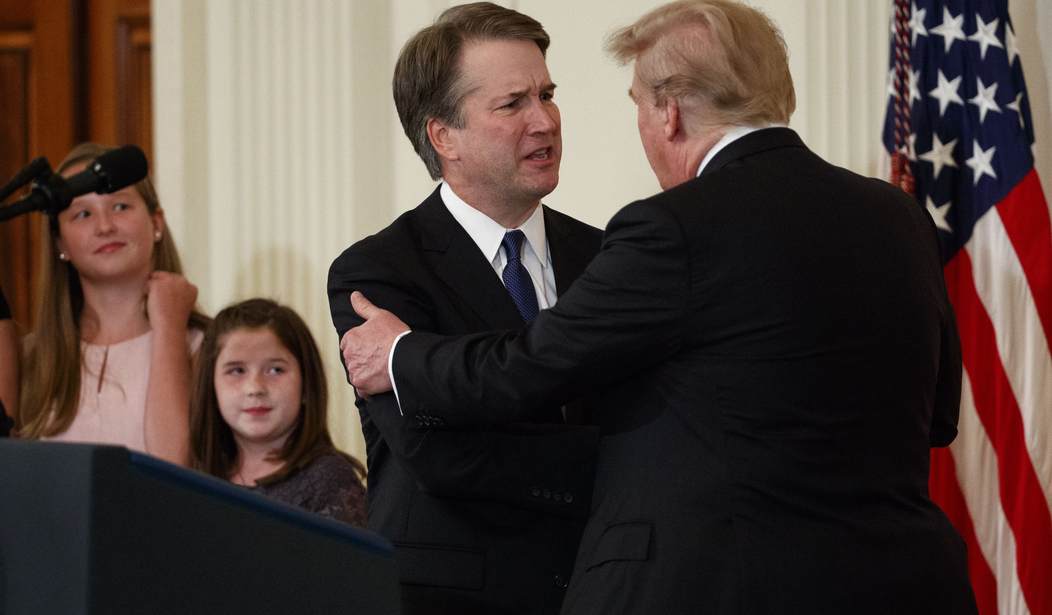As the battle begins over the Supreme Court nomination of Brett Kavanaugh, some valuable advice:
Conservatives, stop saying we need a conservative on the court. Pro-lIfers, stop saying we need a pro-lifer.
As a pro-life conservative, I am thrilled at the prospect of Roe v. Wade being overturned. But I should not expect the Supreme Court to push my political agenda. That’s what the left does, and it is why so many rulings are constitutionally flawed.
Roe should be overturned not because of my pro-life passions, or any justice’s, but because as a factual matter, there is no right to abortion in the Constitution.
The danger in seeking a “conservative” justice or a “pro-life” justice is that it frames the pick in precisely the wrong way: politically. In politics, there are supposed to be two sides—or more. The Supreme Court was never intended to be a robed legislature hammering out decisions to satisfy a mixed constituency. It is the arbiter of constitutionality for laws passed and cases accepted.
So, when the Warren Burger court examined abortion rights 45 years ago, it had one question to tackle: Does our nation’s founding document contain a basic right to terminate a pregnancy?
Finding none, they invented one. Seven justices based their arguments not on the rule of law, but on their social view of how they felt America should be. Their wish to forbid states from protecting the unborn outweighed their obligation to follow the guidance of the Constitution’s text.
Recommended
It was their personal politics that spurred them to this misbehavior, but the solution cannot be political in return. If it is, we are no better. We are surely morally better in our motives, but that too is not what Supreme Court cases are about.
So instead of filling our support for Kavanaugh with references to conservative or pro-life goals, we should carry the banner of constitutionalism. When we argue against Roe in the constitutional arena, it forces opponents to assert that there is indeed an abortion right in there somewhere, something for which there is no objective evidence.
Conservatism invites liberal response. Pro-life activism invites pro-choice pushback. But a debate over what is and is not constitutional is where we win, both in the nomination fight and the eventual defeat of Roe, because the other side is a sociopolitical concoction.
While politics always has another side, constitutionality is a yes-or-no question. What exactly are the opposing sides of the question of whether a unicorn is in the garage? Some people may want a unicorn in the garage, some may actually believe there is one. Some may say they see one. But ultimately, the unicorn is either there or it is not, whether one is pro-unicorn or anti-unicorn.
As such, there is no need for “balance” on the court. That is a leftist construct, born of their success in framing cases as political battles with the goal of advancing various causes. What is needed is constitutional fidelity, ignoring whose interests are advanced or slowed as a result.In no way does this guarantee eternal 9-0 decisions; even principled textualists can have differing lenses.
But as Kavanaugh promises to change lives and law for decades to come, his value is not in the rulings he will assist to the delight of conservatives. His legacy will be lifted by the ways in which he honors the Constitution, a track record of benefit to all.

























Join the conversation as a VIP Member